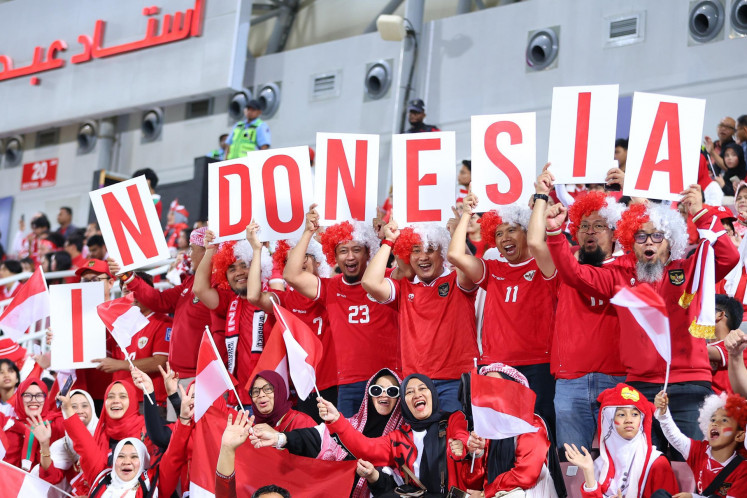Oil industry welcomes possible return of cost recovery scheme
The Indonesian Petroleum Association (IPA) welcomes the government's plan to reintroduce a reimbursement scheme for the oil and gas industry known as cost recovery after having to work under a fixed split-cost system since 2017
Change Size

T
span>The Indonesian Petroleum Association (IPA) welcomes the government's plan to reintroduce a reimbursement scheme for the oil and gas industry known as cost recovery after having to work under a fixed split-cost system since 2017.
In a cost recovery-based production-sharing contract (PSC), the government reimburses companies for upstream-related costs in exchange for a higher share for each company’s earnings from exploiting domestic oil and gas blocks.
Meanwhile, in the so-called gross split scheme, companies bear upstream costs themselves, but the government receives a smaller cut of revenue determined in advance.
“The key challenge in our industry is that not every project is the same. They have different risks, need different rewards. So the discussion about flexibility is something I'm pleased to hear," said newly-appointed IPA president Louise McKenzie at a press conference in Jakarta on Dec. 4.
She added that the IPA, an organization founded in 1971 to facilitate foreign interest in Indonesia’s oil and gas industry, has been advocating for such flexibility to improve the country’s investment climate.
Exploration investments in Indonesia has been declining over the past five years. Investments went from US$3.04 billion in 2013 to $567.5 million in 2017 before improving to $786.2 million last year, energy ministry data shows.
Oil production also steadily declined over the same period from 825,000 barrels per day (bpd) to 754,000 bpd in August this year, according to Upstream and Gas Regulatory Special Task Force (SKKMigas) data.
Energy and Mineral Resources Minister Arifin Tasrif first raised the possibility of the government reintroducing cost recovery schemes during a hearing with the House of Representatives in Jakarta on Nov. 27.
He told legislators that companies wanted the flexibility of choosing between gross split and cost recovery schemes depending on the geographical condition of each field.
“The key challenge in our industry is that not every project is
the same. They have different risks, need different rewards. So the
discussion about flexibility is something I'm pleased to hear."
“If the field is riskier and more remote, they will choose a cost recovery scheme,” he said. “If its gross split, they’ll be happier to use it for existing fields because the potential is clear and thus, the risks are lower.”
He added that another common complaint over the cost recovery scheme was bureaucratic red tape related to receiving reimbursements.
The Energy and Mineral Resources Ministry revoked cost recovery PSCs in 2017, under the leadership of former minister Ignasius Jonan, through the issuance of Ministerial Regulation No. 8 on the use of an alternative gross split PSCs.
The reason the energy ministry introduced the gross split scheme was to reduce state expenditure on upstream activities. Last year alone, Indonesia disbursed US$7.89 million in operational cost disbursements, up 7.7 percent from the previous year, but down 27.84 percent from 2015, according to SKKMigas data.
On a four year average, the largest components of reimbursements were production (68.2 percent), development (15.2 percent), administration (10.7 percent) and exploration (5.9 percent), SKKMigas data shows.
Despite the compulsory adoption of gross split PSCs, the ministry still reimburses costs for those companies whose contracts were signed before 2017.
Energy practitioner Tumbur Parlindungan, who was former president director of Jakarta-based oil and gas company Saka Energi Indonesia, has a bolder stance, as he considered the PSC system to be completely revoked to stimulate investment in the industry that has witness steady declines in the past few years.
“Egypt and America do not have PSCs. Their governments get enough tax and royalty,” he said.
He also argued that Indonesia would benefit from erasing PSCs by spurring foreign investment in the upstream industry. Most stakeholders agree that such investment is key to discovering new oil and gas fields and thus, increase domestic oil production.









